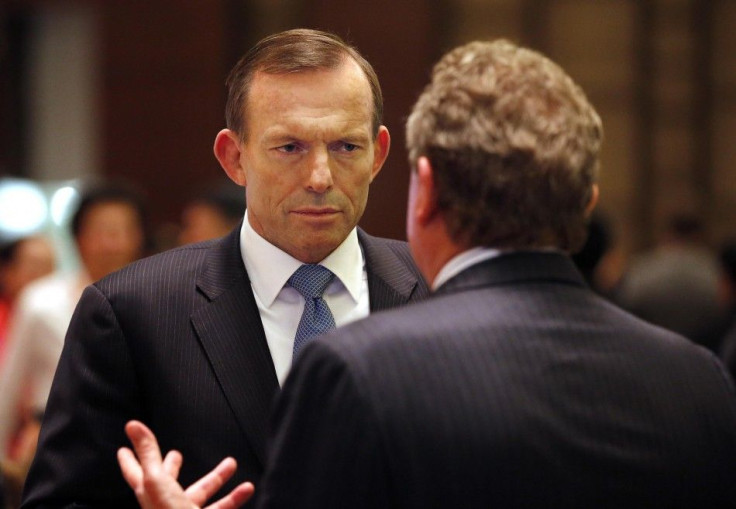Former Treasurer Peter Costello Warns PM Tony Abbott that Proposed Deficit Tax Has No Economic Benefit

Australian Prime Minister Tony Abbott will surely deny it, but he is now experiencing his Julia Gillard moment as latest surveys showed a drastic drop in the Coalition's approval rating from Aussie voters over his proposed deficit tax.
After 8 months in power, Mr Abbott's satisfaction rating is at 35 per cent, down by 5 per cent, while his dissatisfaction rating jumped 9 per cent to 56 per cent for a net rating of minus 21 per cent.
Read also:
Is Australian PM Tony Abbott Rejecting Indonesia's Olive Branch by Postponing Trip to Bali?
The Most Expensive Breakfast in Australia Costs $11,000 When Eaten With PM Tony Abbott
Abbott Government Plans at Least $800/Year Deficit Levy for Aussies Earning $80,000 or More Annually
It is not only the PM who has been hit hard by his apparent break on campaign promise not to raise taxes with support for the Coalition going down also by 5 per cent to 38 per cent. It is the lowest level for the party since he assumed the leadership post in the Liberal Party two years ago.
His former nemesis, Ms Gillard, fell down from power because of the carbon and mining taxes which Aussies also said was a campaign vow by then ruling party, Labor.
But the voter anger did not turn out a blessing for the Labor Party because its primary vote was unchanged at 34 per cent, while Labor leader Bill Shorten's personal satisfaction rating added four more points to reach 35 per cent.
Before it would be too late for the Abbott administration, former Treasurer Peter Costello warned the PM that the proposed deficit tax of 1 per cent for those earning $80,000 or more a year offers no economic benefit to Australia.
Likewise, Tony Shepherd, head of the Commission on Audit, pointed out that by overcorrecting the situation - the expected $30 billion fiscal deficit for the incoming year - the measure could negatively affect business and consumer confidence.
The government, however, appears bent on imposing the deficit tax despite early warning signals that it would further anger Australians who became displeased with the Coalition-led government even before it could celebrate a year in power. But reports said the measure, to be announced on Wednesday for inclusion in next week's budget, could possibly increase the minimum taxable income to $100,000 from the previous $80,000.
Explaining his advice, Costello wrote in a regular newspaper column that the plan is politically motivated, not based on sound economic policies, since it would slow down via lesser consumption as Aussies affected would tighten their belts and spend less.





















